7 Bad Habits That Prevented Me From Losing Weight

Do you want to lose weight by ditching a few bad habits? Cori Lefkowith started a company, Redefining Strength, to help people achieve their diet and fitness goals. In a recent viral video, she throws down some serious wisdom on ways you might be preventing weight loss. "I've made all the mistakes when it comes to trying to lose fat, gain muscle, and create that sustainable lifestyle balance. But I like to think that all of my interesting experiments work for nothing because I've made so many mistakes," she says. "That's why I wanna share seven bad habits that kept me from losing fat for the longest time, and I'll be honest, most sabotaged my success because they were simply unsustainable and created a mindset of restriction and deprivation because while achieving our goals does mean making sacrifices at times, we also have to learn to create a balance meeting ourselves where we're at."
Mistake 1: Eating Too Clean

Cori explains that the first bad habit is one that lots of people have had to "sabotage our success," and that is eating too clean. "I literally ended up curled up on the bathroom floor of a hotel in San Diego. I was pasty white in a cold sweat and looked like death, all because I'd eaten only chicken and broccoli and extremely clean, one-ingredient foods for weeks before the vacation. One spicy sangria and a couple of appetizers later, I was sick. It's because I had created these extreme limitations on myself that had not only left me miserable for weeks while not seeing better results faster, but they led me to be sick from the first deviation from my clean eating plan."
It Can Lead to Many Things
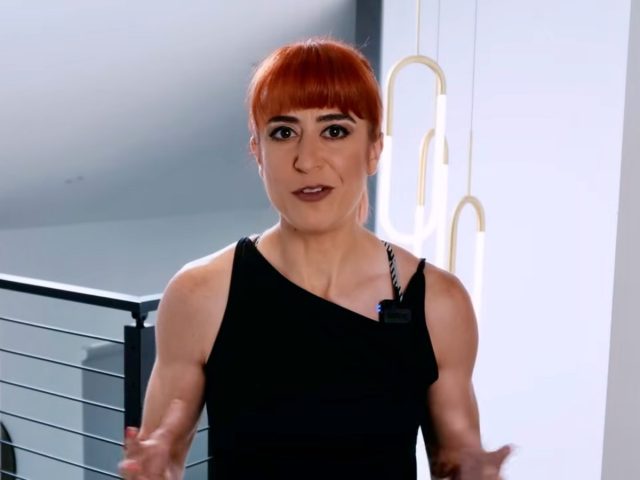
"Too often, we try to make ourselves feel guilty for not hitting some arbitrary standard of clean, but this mindset of good and bad foods not only assigns moral value to foods that don't have any, leading to guilt. When we wanna eat one thing we aren't supposed to, but it can also sabotage our results and long-term consistency," she says. "This extremely restrictive, clean mindset can lead to an obsession with food. It can also lead to us creating nutrient deficiencies, and it can lead to us ultimately feeling so miserable and deprived. We give up, and then we feel like reaching our goals is impossible, and we just don't have the willpower. We start to even dread the idea of making dietary changes because we're trying to force something unsustainable."
Focus Instead on Making Healthier Food Swaps
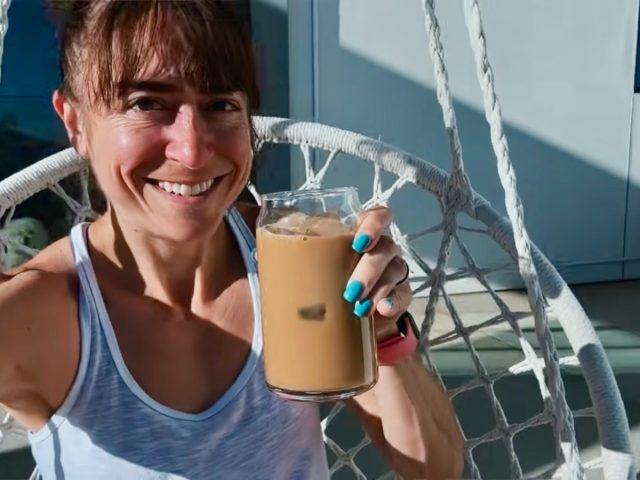
"Instead of focusing on eating clean, focus on small swaps to foods and ingredients based on what you're currently eating. Realize that whole natural foods are key, but you can and should include foods that you enjoy and love," she recommends.
RELATED: 19 Bad Habits I Gave Up to Lose 100 Pounds
Mistake 2: Too Much Food Diversity
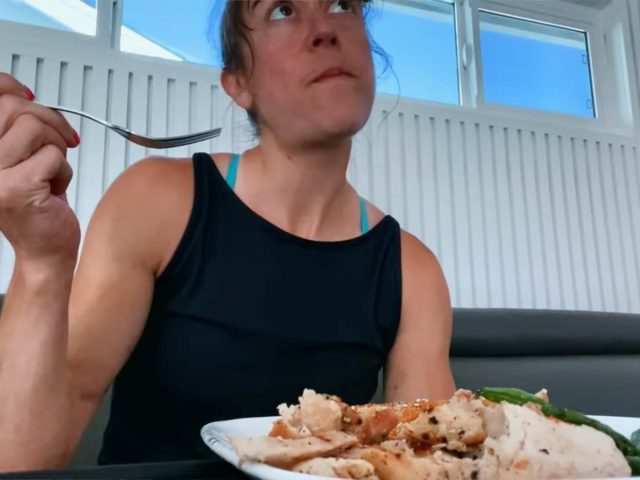
Bad habit number two, "including too much food diversity after attempting to cut out all unclean foods," she says. "I thought it was a great idea to include things to keep my meals interesting and get micronutrients from a diversity of sources."
Over Diversifying Can Be Overwhleming

"While we do wanna include a diversity of foods for optimal health to get vitamins and minerals in different forms, trying to include too much diversity can be overwhelming and lead to actually more cravings," she points out. "The more we give ourselves, the less of a routine and habit we get into, and the more we actually want. It becomes then a slippery slope of more and more foods creeping in, and the less nutrient-dense they are and the more processed they are, the easier it becomes to overeat and feel hungry, even when we've eaten enough calories. Not to mention, it can be grocery shopping, meal prepping, and hitting those macros that are more overwhelming."
Instead, Keep It Simple
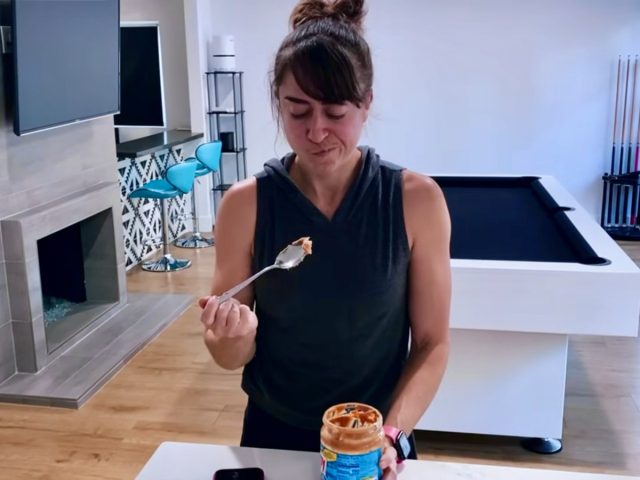
Instead, simplify and focus on a set grocery list and meal plan with a few key ingredients each week, which "can help us stay consistent and not be overwhelmed as we make changes," she says. "Studies have even shown that we're less likely to overeat when eating the same things repeatedly. It can make it easier to maintain our macros and calorie deficit. It leads to fewer cravings and a better shock mechanism when we consume what we need."
Mistake 3: Going Too Hard
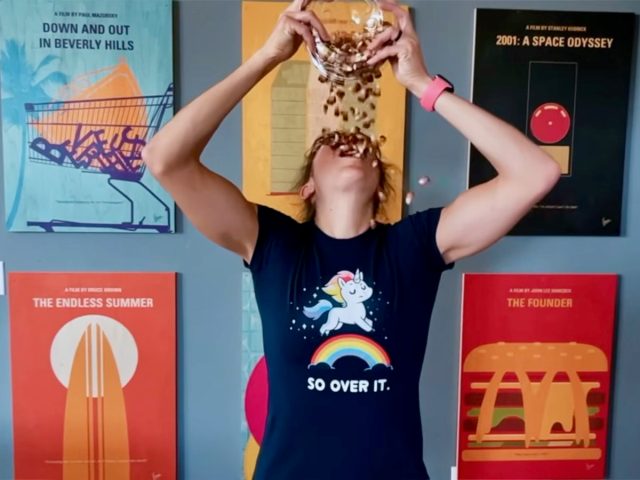
The third bad habit? "When we want better results faster, it's always going hard and never cycling intensity. Sometimes less is more, and sometimes if we back off when we aren't motivated or proactively give ourselves a break, we actually stay more consistent," she says.
RELATED: Top 14 Superfoods You Should Eat Every Day to Sleep Better
You Might Lose Steam
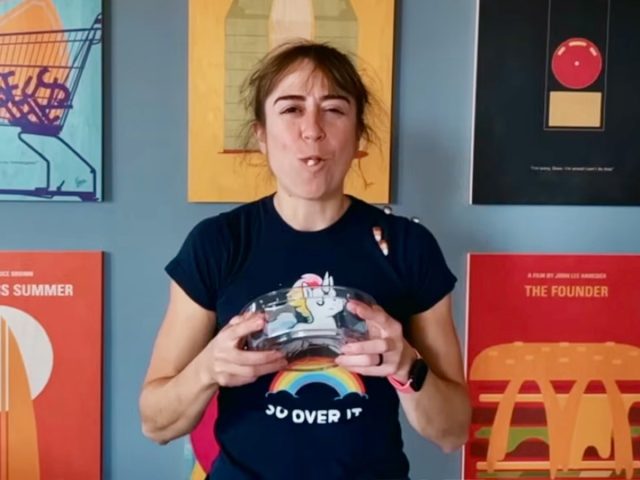
"Overall. If you've been dieting and in a deficit for a while, you might both mentally and physically start to feel the impact of the lower calories your body wants to fight. The weight loss process as weight loss is seen as a threat to its survival, so you will find that cravings go up even as you get leaner and your mind fights against what you know you should be doing. You may even feel demotivated to train the way you know you should."
It's Okay to Take a Dieting Break

This is where potentially a deload week or a dieting break might come in handy, she says. "The key is doing these things strategically and with a plan, not just eating everything in sight while you lay on the couch for a couple weeks doing nothing, but giving your body a break from the calorie deficit, maybe even including a couple of foods that you wanted but haven't included," she continues. "Just be strategic and give yourself guidelines to eat at maintenance level and give yourself easier macro breakdowns. Don't let this become a free-for-all. And then you might find that you're more motivated to train with the increase in fuel or that a deload week allows your body a break to repair and rebuild while also giving you a mental break from the strain of constantly pushing that progression. But be proactive. If you've been dieting for a while and give yourself that strategic break, you might be surprised by how much it even helps you break a plateau."
Mistake 4: Using the Scale to Measure Progress

"The next bad habit is one that many of us fall prey to, which can prevent us from sticking with the habits we need to see the body recomp that we want, and it's only using the scale to measure progress," she says.
The Scale "Doesn't Show Us the Full Picture"

While the scale is "a great tool," it "doesn't show us the full picture," she says. "It can make you feel like you're actually even losing ground when results are truly building. And that's because the scale only shows you your weight at that moment on that day. It doesn't tell you if you've gained weight because you've gained muscle as you've lost fat or that you've lost weight because you've lost muscle while you've been gaining fat. Seeking to lose as fast as possible on the scale can actually sabotage your results and your long-term maintenance. But the faster that we seek to see results on the scale, the more we end up losing muscle mass and not just fat."
RELATED: 20 Habits Blocking You From Losing Weight
Instead, Take Body Measurements and Progress Photos

"If you wanna focus on truly losing fat to look leaner, you need to track your progress by taking body measurements and progress pictures, especially progress pictures of areas you don't even care about changing," she says. "Often, the places we wanna lose from the most are the last to go. So by taking multiple angles in areas, we can see fat loss occurring in other places and know how to stay on course."
Mistake 5: Trying to Out Exercise Your Diet

The next bad habit, one of the "most challenging to break," is trying to out-exercise your diet. "Many of us fall into this habit because it actually does work, at least to start. But this is also what keeps us stuck in that yo-yo dieting cycle, struggling more and more to lose the weight."
It Will Work for a While, But Your Body Will Adapt

"As we get older, it works because most of us are more comfortable being uncomfortable in our training than we are with making nutritional changes. We can also create that calorie deficit to start by doing more in our workouts, and it makes us feel really in control to push hard. We feel good about our hard work, but working hard doesn't mean we're working hard in a direction that moves us forward," she says. "And over time, our body adapts to the training stimulus, which means we aren't creating the calorie deficit we once were. So at that point, either our diet needs to change, or we need to train longer and harder. At some point, though, trying to do more in our workouts is going to burn us out, or it will lead to injury or even metabolic adaptations. Those metabolic adaptations then can make it harder and harder for us to lose as we get older."
Instead, Your Nutrition Should Match Your Goals

"The simple fact is our nutrition has to match our goals, and by adjusting our diet, we can see our performance in the gym even improve. As we see that amazing body recomp happening, we will truly see the hard work and sweat we're putting in during our workouts pay off. And I think it's key that we really recognize that at times, we won't feel like our hard work is paying off. We won't see linear progress towards our fat loss goals," she says.
RELATED: Lose 20 Pounds in 80 Days with a Vegetarian Diet
Mistake 6: Viewing Exercise as a Means to Lose Weight

Her next bad habit is "treating your workouts only as a means to lose weight," she says. "While we do wanna design our workouts and our diet to work towards a singular goal, I think it is also key we set complimentary goals that further motivate us to do the habits we need to see results. And that's why I found a secret to consistency and success in seeing results was setting performance goals."
Focus on Specific Performance Goals
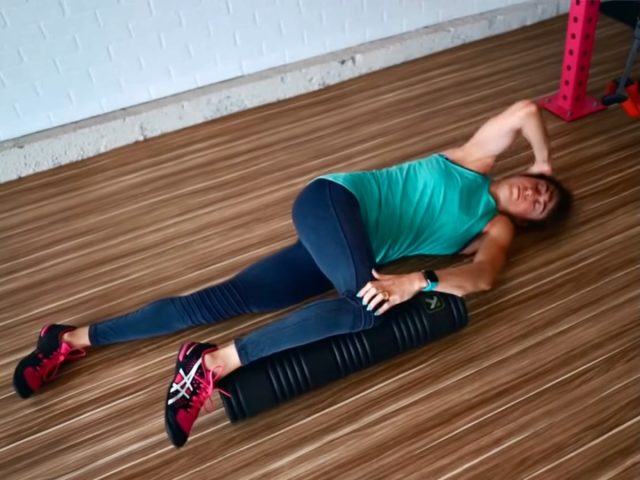
"I stopped seeing my workouts as just a chance to burn more calories by focusing on specific performance goals, like improving my pushups, conquering a scale, lifting more weight in a specific lift, addressing an imbalance or even training for a competition. I helped keep myself more motivated to train hard. I have more purpose for each workout, and then I have something to track in the gym to see my hard work," she says.
Shifting Your Goals Will Help You Lose Fat Anyway
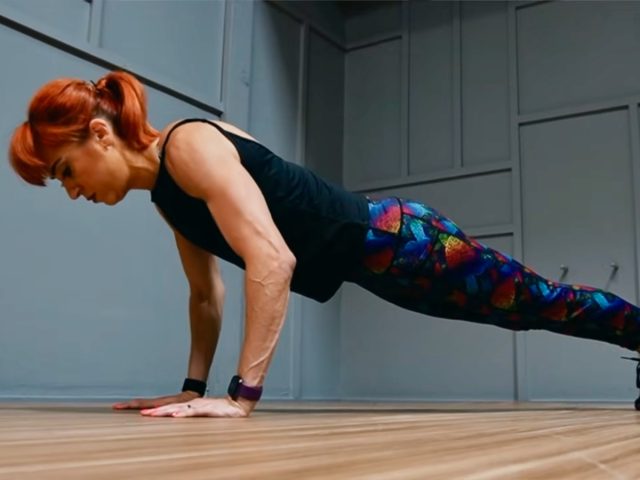
"Building towards this ultimately also helped me lose fat because it kept me doing the habits I needed to. I wanted to eat to fuel and feel my best, which resulted in better body comp. I wanted to do the recovery. I needed to be able to train hard by setting complementary goals like performance goals for our workouts; we better help ourselves stay motivated to do the habits we need. Even when fat loss results are slow, or we've hit a plateau, it allows us to celebrate wins to keep moving forward," she maintains.
Mistake 7: Don't Feel Like You Are Starting Over

The final bad habit that "sabotaged" her for years was "starting over every January," she says. Every holiday season, she would make excuses and "pack on the pounds."
She Realized the "Power of 1% Improvements"

"That's when I realized the power of 1% improvements. Just being a little more consistent, focusing on doing a minimum could help me move forward even during a time I didn't care as much or have the motivation and focus," she says. "Too often, we rely on a perfect 21 days or six weeks, but doing the ideal only during those times doesn't allow for true habit changes or results to snowball. So it's key."
RELATED: 12 Signs You're Eating Too Much Fat
It Doesn't Have to Be "All or Nothing"

"Stop the all-or-nothing habit changes and realize that sometimes something is better than nothing. Embracing doing the minimum at times," she recommends. And if you enjoyed this article, don't miss 20 Incredible Ozempic Success Stories of All Time.




